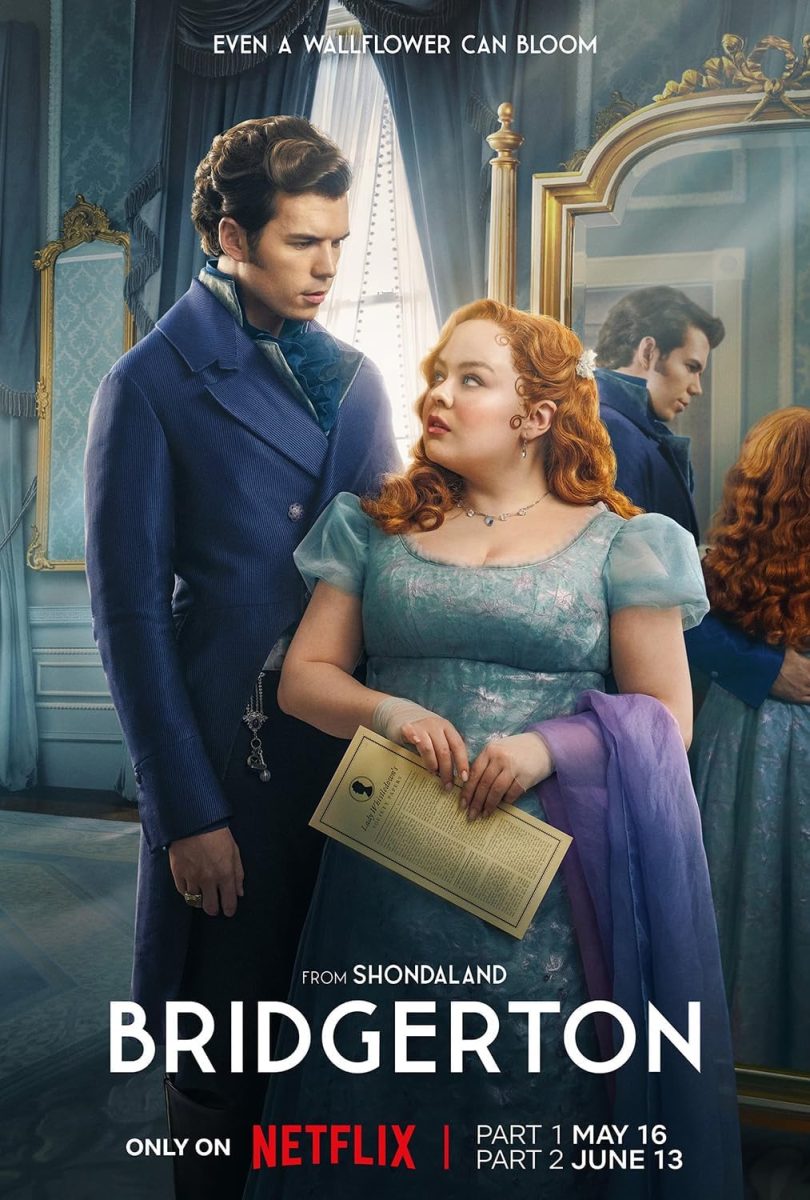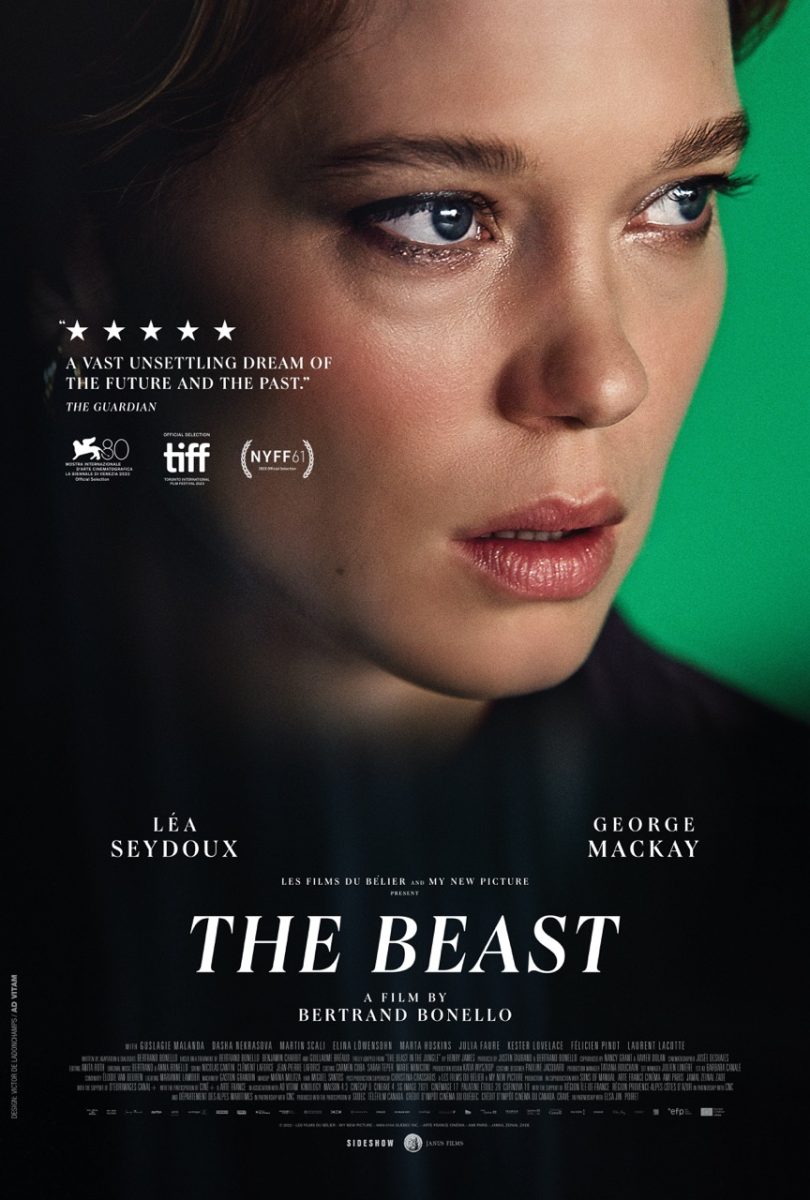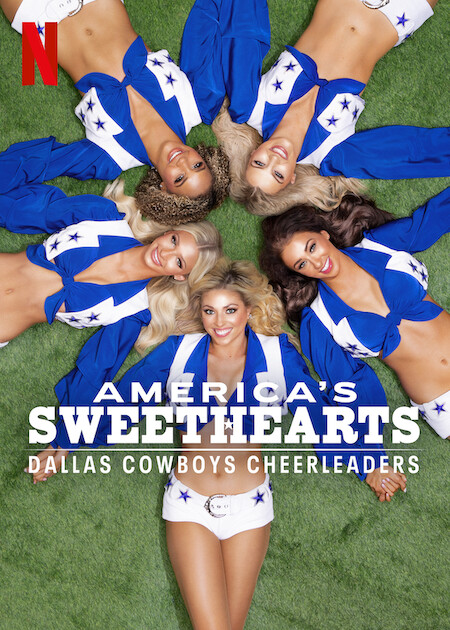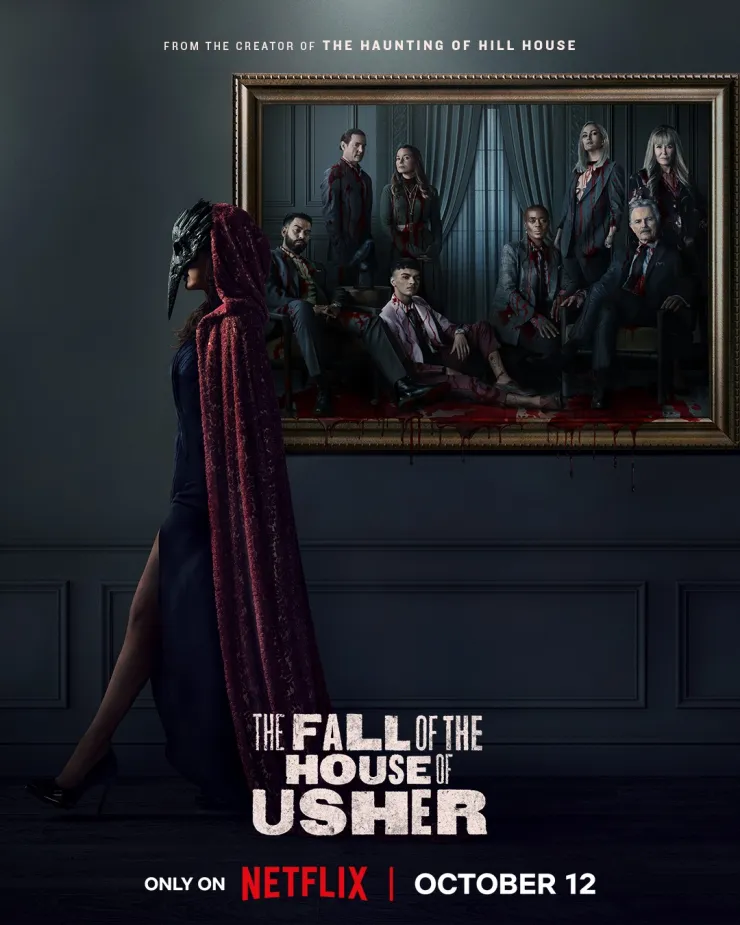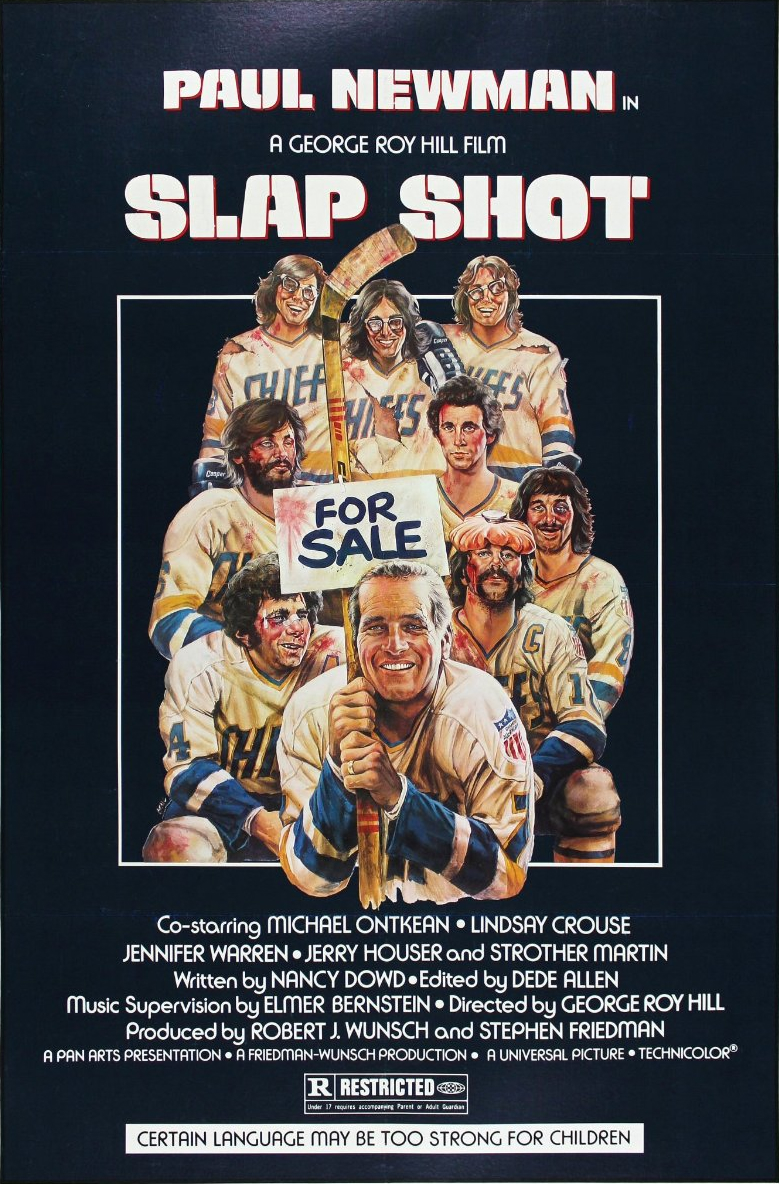As a self-proclaimed connoisseur of guilty-pleasure romances, I’ve devoured everything from the “A Court of Thorns and Roses” book series to reality TV shows like “The Bachelor.” My motto? The trashier, the better. So naturally, when it came to deciding whether to watch the new season of Bridgerton, a Regency period drama known for its steamy scenes and swoon-worthy leads that adapt Julia Quinn’s Bridgerton novels written in the ’90s, I was all in.
After falling head over heels (and into frustration) with the Simon/Daphne and Kate/Anthony romances in the first two seasons, I waited with bated breath for Season 3. The promise of Penelope and Colin’s (known as Polin together) love story, two characters whose friendship had been simmering with potential, had me counting down the days. Add to that a two-year wait due to the writers’ strike, and my expectations were sky-high.
We last saw Penelope Featherington (Nicola Coughlan) and Colin Bridgerton (Luke Newton) at the rock bottom of their romantic arc. The finale of Season Two saw Penelope left heartbroken and humiliated by Colin who had announced to his jeering friend that he would “never court her.” In part one, released on May 23, we find our dear Penelope Featherington deciding she’s had quite enough of pining after her oblivious friend and with a strong desire to leave her former “wallflower” status behind. Armed with a newfound determination (and a much-needed wardrobe upgrade), she sets out to snag a husband who will save her from spinsterhood and her overbearing, often unintentionally callous mother.
Enter Colin, fresh from his summer travels and sporting a personality transplant, who decides to play matchmaker for Pen. Because nothing says, “I’m definitely not in love with you” like teaching your crush how to flirt with other men, right? Meanwhile, Penelope juggles her secret identity as Lady Whistledown, a strained friendship with Eloise and the attention of the suspiciously perfect Lord Debling. (Penelope, if you don’t want him, I’ll take that man. Rich, likes animals and wants to leave you alone for months to spend his money as he travels by himself? Immediately sold.)
Part two, released almost a month later on June 16, shifts away from the will-they-won’t-they romantic plotline as the hunt for Lady Whistledown intensifies, threatening to expose Penelope’s secret and leave her and those she loves in social ruin. Add in Eloise’s ongoing existential crisis and relationship with Cressida Cowper, the mean girl that had terrorized Penelope in both previous seasons, Benedict’s affair with a random blonde widow, Francesca’s sudden existence and romantic plot and at least five other subplots, and you have a packed season.
Let me tell you, this season was bad. Not just bad, but absurdly, would-be-hilarious-if-it-wasn’t-so-painfully-bad. When will Netflix stop wasting their money, my time and fantastic actors?
The corporation’s first mistake was releasing the season in two parts. Who thought that interrupting the storyline halfway through was a good idea? Everything from the music (classical renditions of pop songs that felt more jarring than clever) to Penelope’s anachronistic pink acrylics, Francesca’s full-beat glam and the sheer amount of cringey, shallow dialogue gave me intense second-hand embarrassment. Where did it all go so wrong? While Bridgerton was never truly authentic to the Regency era (for good reason), this season felt like it had veered into a fantasy realm of its own making. The set design and writing were so jarringly different, that I found myself wondering if I’d accidentally stumbled into a different show altogether.
Still, credit where credit is due. The actors and costume designers busted their asses to salvage what they could. Coughlan as Penelope was effervescent, glowing from the inside out. Her glow-up was a major plot point, and they truly delivered. Gone were the unflattering yellow dresses and minimizing hairstyles. Instead, we got Penelope who looked every inch the romantic lead she was meant to be.
Coughlan’s acting chops (honed in the brilliant “Derry Girls”) shone through as she navigated Penelope’s complex character. Yes, Penelope can be conniving, cruel and selfish in her Lady Whistledown persona, but Coughlan made me relate to her desperate need to be loved and seen. Plus, Penelope serves as the vehicle for the show’s feminist narrative, taking her financial future into her own hands in a world where women have little agency.
Luke Newton did his best with Colin, a character I find frustrating at the best of times. He’s not given much to work with in terms of dialogue, not given anything resembling the compelling, stand-out lines like “I burn for you,” from Simon in Season 1 or “You are the bane of my existence and the object of all my desires,” from Anthony in season 2. Also, the personality transplant I mentioned earlier? A hard watch as the previously considered more sensitive and emotionally intelligent man frequents brothels and seems to be trying to embody his more confident, swarthy older brothers as he boasts to the young ladies of society about his travels. To be fair, a major part of his storyline surrounds his struggle with self-discovery and with his identity, but it was nonetheless a struggle to not skip those scenes.
But here’s my biggest gripe: there wasn’t nearly enough focus on the main romance. After two seasons of build-up, I expected fireworks. Instead, I felt like I was scraping for sparks!
The friends-to-lovers trope could have been gold, but it felt rushed and underwhelming. Where was Colin’s groveling after his hurtful comments in season two? The “flirting lessons” could have been a goldmine of sexual tension, but they were relegated to a few awkward scenes. Imagine if they’d gone all out- Colin teaching Penelope to kiss, to touch, to smolder, only to fall into his own trap. What a wasted opportunity! And don’t get me started on the lack of subtle romantic moments.
Remember Daphne and Simon’s electrifying hand touch in the gallery? Or Kate and Anthony’s charged ring fitting? With Colin and Pen, we got a few condescending lessons, a begged-for kiss, a carriage scene and then bam- proposal. Where was the build-up? The longing? The tension? I know the romance has been technically building for the past two seasons, but overall, the pace felt unnecessarily rushed. We did get a few steamy scenes, like the mirror scene and carriage scene, which did truly feel electrifying, as the actors had amazing chemistry.
Instead of focusing on the romance, in both parts, the writers crowded the season with unnecessary side plots. While some were intriguing (Cressida’s storyline had potential, even if the ending fell flat), they all felt like distractions from what should have been the main event.
Part two’s shift to the Lady Whistledown reveal felt like another misstep. On one hand, it was a major part of Penelope’s story, particularly as she fears how Colin will react when he finds out, as he has expressed a fervent (and 100% justified) dislike for the gossip columnist. However, Colin finds out pretty early on in part two, and the storyline shifts to focus less on their interpersonal conflict and more on trying to keep the secret from coming out as it threatens social ruin for their family. I can appreciate the storyline for its feminist undertones (which it can be argued the show sorely needs) as Penelope grapples with her professional legacy and her identity as a self-made businesswoman in a time when women were severely economically limited. I also applaud her for apparently making the equivalent of a million-plus pounds through her writing.
However, this plotline completely overshadowed the romance when it could have enhanced it instead. Call me a bad feminist, but I do not watch the show for social commentary on this fake Regency era! After two seasons of watching Penelope be dismissed and taken for granted, I wanted to see her swept off her feet and spoiled with affection.
I can only speculate why they failed to do Polin’s story justice. Did the new writers not believe a plus-sized (a characteristic that is both debatable and overly emphasized in previous seasons) woman could carry the main romance? Were they rushing to set up future storylines, fearing they wouldn’t have enough seasons to cover all the books? Whatever the reason, I left this season feeling cheated. Without a strong commitment to the central romance, Bridgerton becomes just another melodramatic period piece about privileged aristocrats with trivial problems. It needs to remember its roots— give us the push-and-pull interpersonal drama, give us the steamy romantic tension or don’t bother at all.



